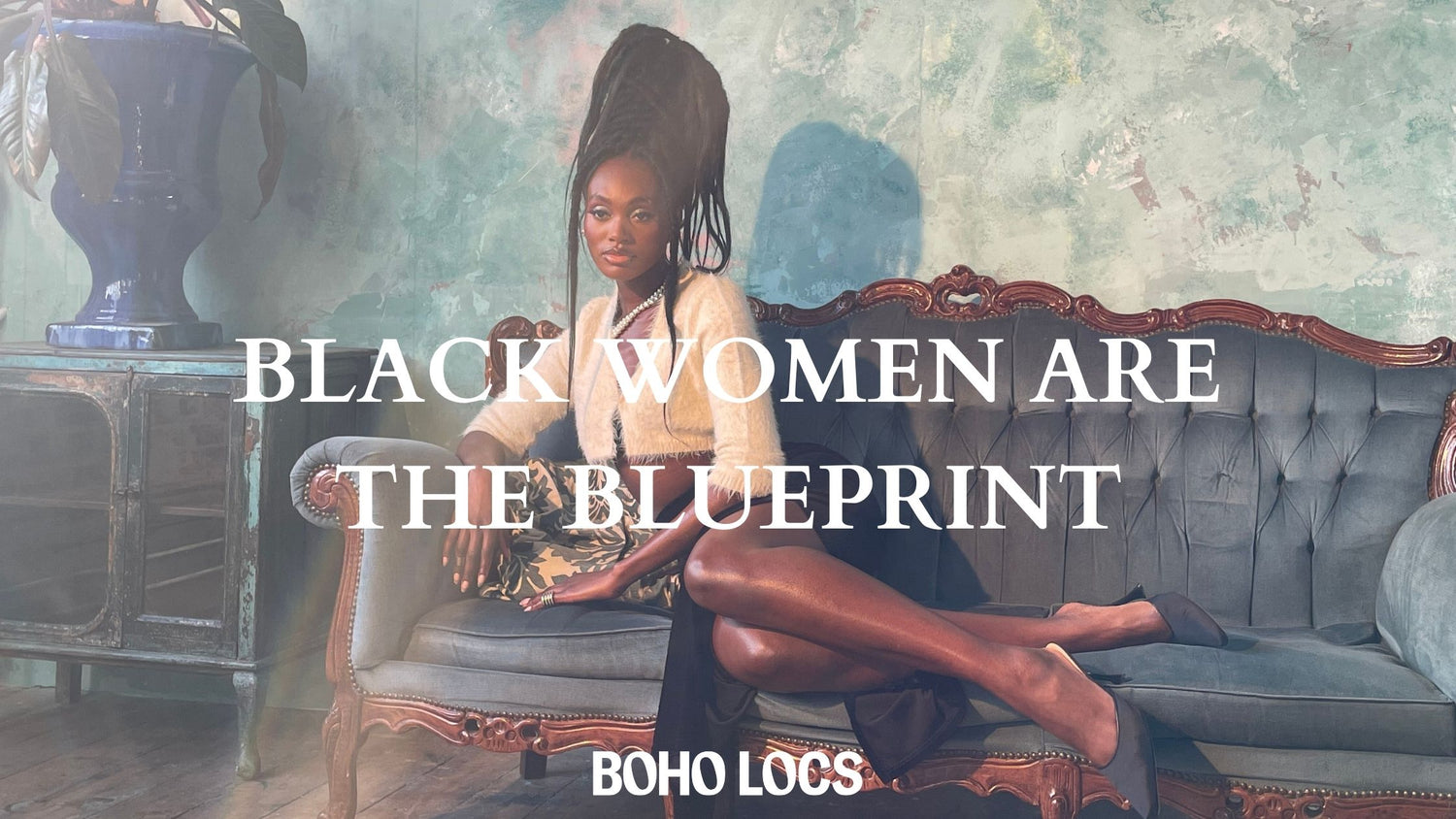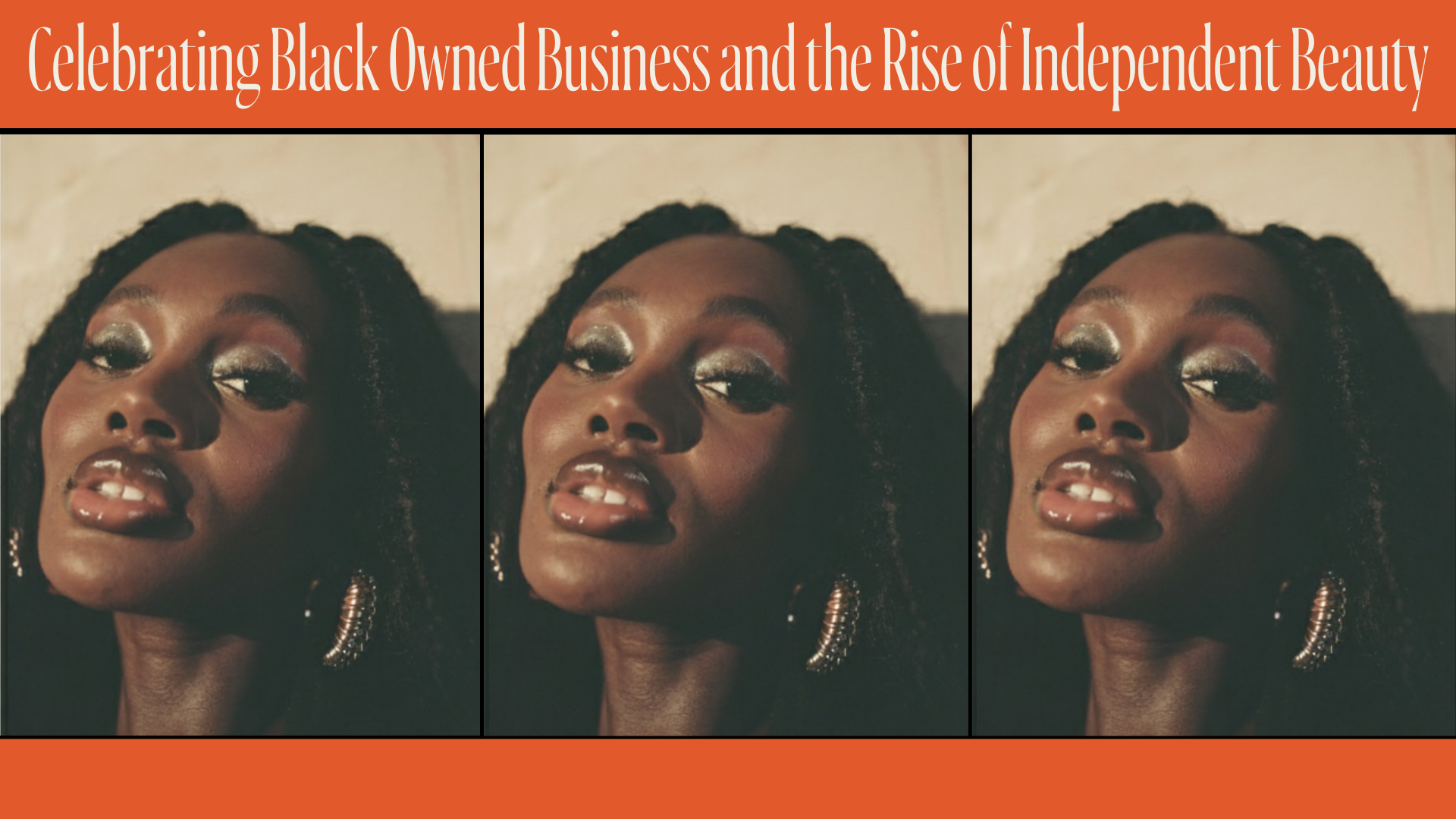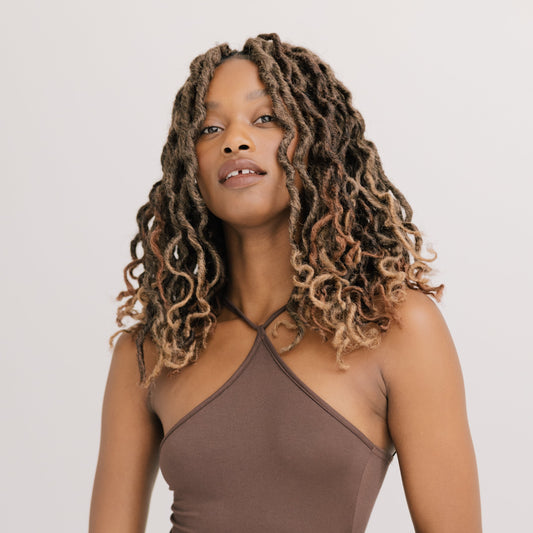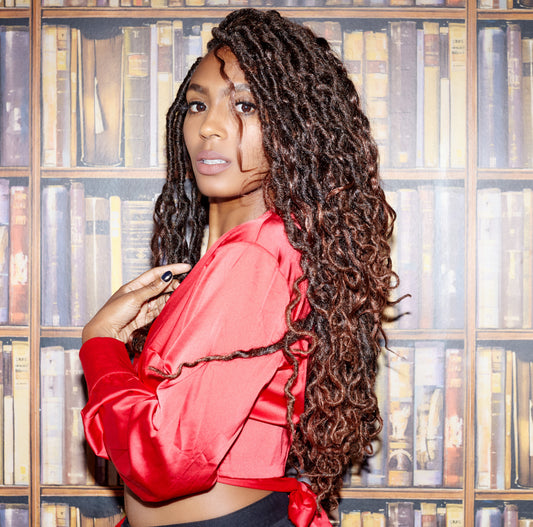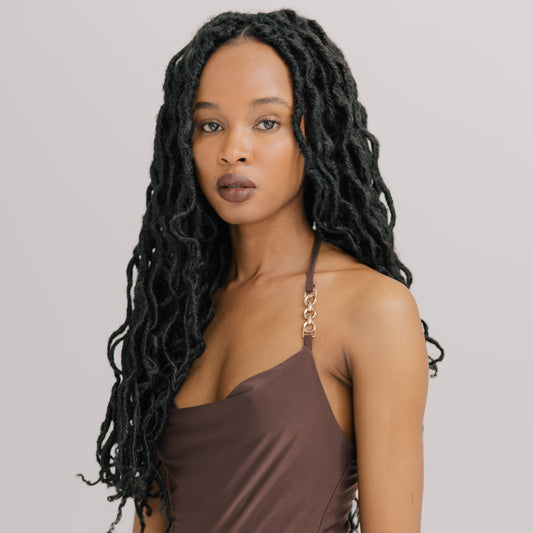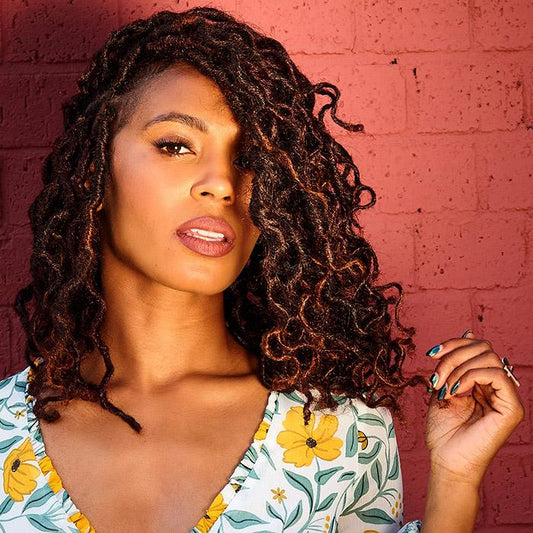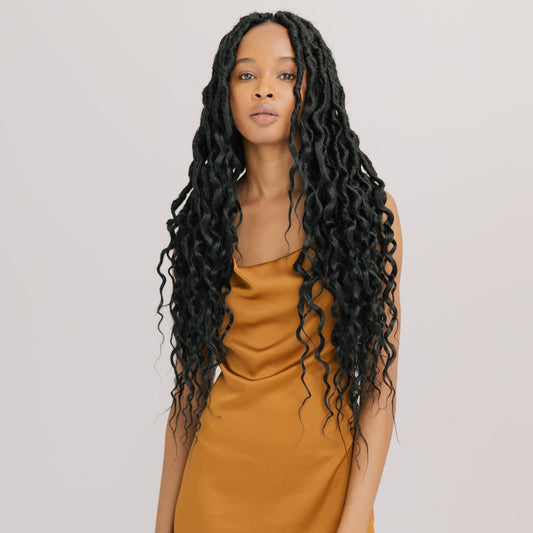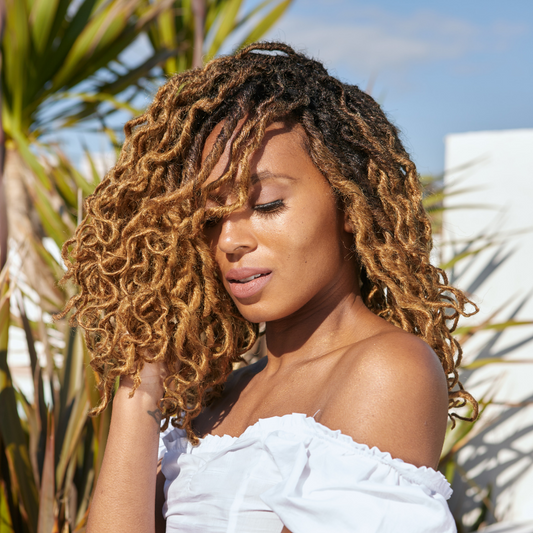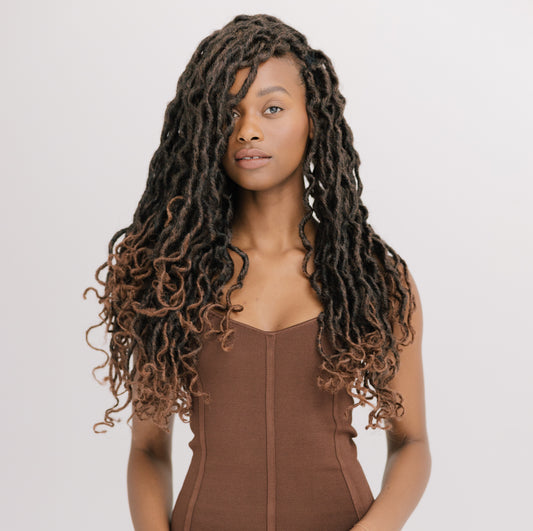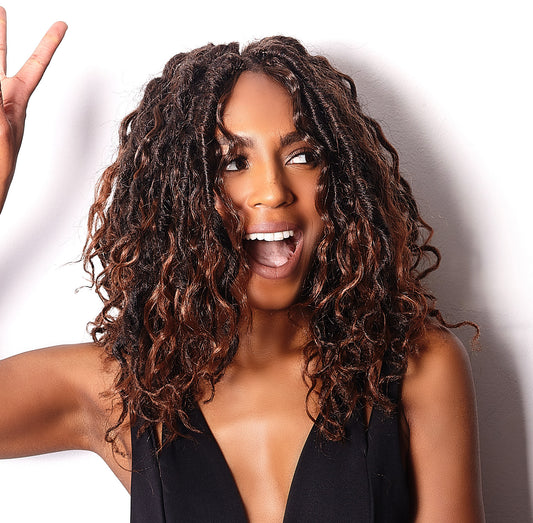They say imitation is the greatest form of praise and if that is the case, black women throughout history deserve it all—and then some.
Here's the thing!
We are bringing back our most coveted style and we are too excited!
Our Boho Silk Locs is a signature look, often coveted but never duplicated!
In celebration we have launched our Blueprint campaign, a campaign that celebrates black women as style and cultural icons.
Truth be told, we are the blueprint and that cannot be stated enough.
Black women are more often than not the creative and innovative minds behind some of the most culturally-important moments in fashion and hair.
Yet, we are still chronically underserved when it comes to getting the respect, credit, and coin we deserve.
Even the natural fullness of our lips, the gorgeous kink and curl of our hair, and swing of our hips is often imitated, but never truly duplicated simply because you cannot copy the essence and spirit of black women. We are 1 of 1.
And while it is beautiful that others can recognize the value in what we innately bring to the table, our cultural property is certainly not for them to appropriate and water down.
Period.
Especially when it comes to black hair—a hairstyle is never really just a hairstyle.
Often times, there is rich historical context behind our beloved styles that give them more weight and importance than just doing "something cute" for Instagram.
Here are a few examples that show you what it really means to be The Blueprint.
Naomi Sims' Incredible Box Braids Connection—Nearly 50 Years In the Making

By now, we all know that kanekalon is a black hairstyling staple. From box braids and faux locs to ponytails and updos, this highly textured synthetic hair has been holding us down for decades because it was the first time black women had a synthetic hair option that even attempted to match our hair texture.
But did you know that when Kanekalon first appeared on the scene, it was primarily marketed to non-black women? Yup. Despite the ads being ran in black publications like Ebony, white models—like American actress and model Lauren Hutton—were often the face of the most popular synthetic hair brands.
That was until Naomi Sims, the first African-American supermodel, stepped off the runway and into the beauty industry in 1973. While Sims had incredible success with her own cosmetics brand Naomi Sims Beauty Products, her most enduring contribution to black woman self-care was actually kanekalon.
Sims created Kanekalon Presselle—one of the first kanekalon brands to specifically cater to black women and our unique hair textures. And throughout the next couple decades, would continue to shine a light on the lack of hair options for black women in the industry.
And so, whenever you get your box braids done or put in a fresh set of faux locs that beautifully match your natural texture, thank Naomi Sims for helping make that possible.
Dr. JoAnne Cornwell Reimagines Hair Styling and Management for Black Women with Locs

Locs, as both a hairstyle and expression of religious devotion, have been around for thousands of years. But in 1993, Dr. JoAnne Cornwell revolutionized the style yet again by creating Sisterlocks—a style of locs to help black women dive deep into "self-empowerment and cultural self-expression" while also championing hair health and style versatility.
Different from traditional locs, Sisterlocks aren't rolled or twisted with any product—or handmade at all, for that matter. Instead, they are a thinner dreadlock that is weaved into your hair using a patented tool and can only be installed by a certified Sisterlocks loctician.
Dr. Cornwell created this natural haircare system almost 30 years ago with the idea that she would inspire and empower black women (and later Black men, with Brotherlocks) to love themselves and their culture in the most authentic and radical ways possible.
And still, almost 30 years later, Sisterlocks has remained exceptionally strong in both its universal presence as a go-to style, and in its larger cultural mission.
"Black is Beautiful" Movement of the 1960s Births The Natural Hair Movement We Know Today

Started in the United States in the 1960s, Black is Beautiful was a movement created to counteract, and really, completely destroy the blatantly racist sentiment that typical Black features—such as kinky hair or dark skin—were far less desirable and worthy of celebration and praise than the typical features of their White counterparts.
The movement was started as a way to inspire and encourage black men and women to honor their beauty from the inside and out. However, the movement didn't gain traction until photographer and activist Kwame Brathwaite elevated black representation.
His work under the black modeling agency that he co-founded, Grandassa Models, often featured black women in all their glory; All skintones, all hair textures, and all body types.
In many different ways, it was one of the first times natural black beauty was being adequately represented and promoted on such a large scale. It was so influential, that the natural hair movement as we know it today would not have been able to exist without it.
Black is Beautiful challenged colorism, texturism, featurism, and all other isms asking black people to think of themselves—and their hair—as less than. And today, we continue to accept that challenge.
After all, we are not only The Blueprint, but also the prototype.
Don't forget, Silk Locs are coming back, and will be available to shop on Friday 25th of February at 9am EST.
So if you haven't already, sign up for early access by entering our
#BOFLEEZY competition.
You have a chance of winning a Telfar Bag amongst other awesome prizes.
PLUS you will get an extra 10% OFF your Silk Locs order when you shop early access.
We say it all the time, but this time we really mean it. . .
YOU DON'T WANT TO MISS THIS DROP.
Silk locs will be available to shop for 10 days and after that it's gone.
All orders will be pre-order only as we want to keep this drop as exclusive as possible to help us on our mission in reclaiming our OWN beauty!
SIGN UP HERE!






